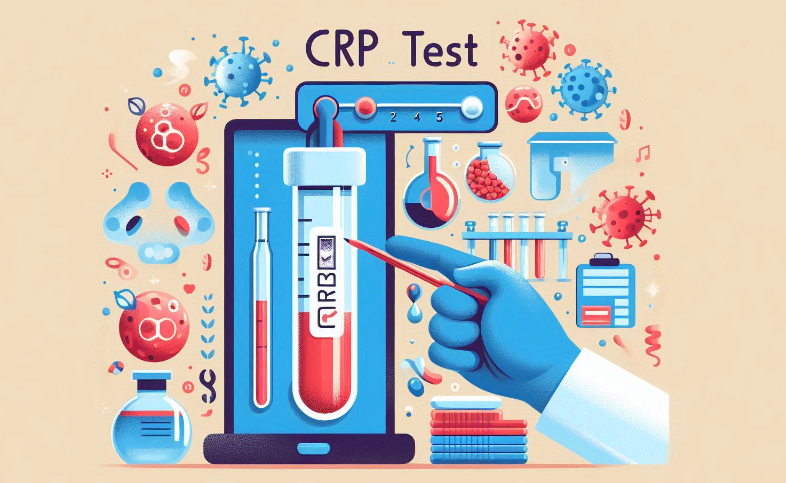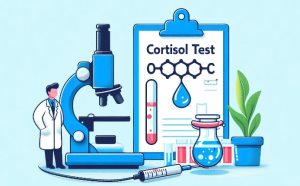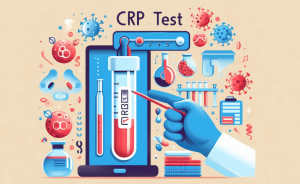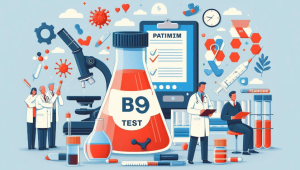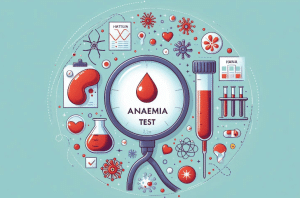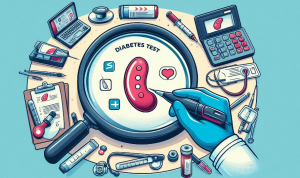What is a CRP Test?
A C-reactive protein (CRP) test measures the level of CRP in your blood. CRP is a protein produced by the liver in response to inflammation. While low levels of CRP are normally present in the blood, elevated levels indicate inflammation somewhere in the body.
Why Do You Need a CRP Test?
A CRP test can be used for several reasons:
- To assess inflammation: It helps determine if there is inflammation present and the extent of it.
- To diagnose infections: CRP levels often rise significantly in response to infections.
- To monitor chronic inflammatory diseases: It is used to track the activity of conditions like rheumatoid arthritis, inflammatory bowel disease, and lupus.
- To assess the risk of heart disease: High-sensitivity CRP (hs-CRP) tests can help evaluate the risk of cardiovascular events like heart attacks and strokes.
What Does a CRP Test Measure?
The CRP test directly measures the concentration of C-reactive protein in your blood. Indirectly, it can reveal:
- Presence and severity of inflammation: Elevated CRP levels indicate inflammation somewhere in the body. The higher the level, the more severe the inflammation is likely to be.
- Potential underlying causes: High CRP can point to various conditions, such as infections, autoimmune diseases, or chronic inflammatory diseases.
- Risk of heart disease: High-sensitivity CRP tests can help predict the likelihood of future cardiovascular events.
Preparing for the Test
Generally, no special preparation is needed for a CRP test. However:
- Fasting: Some labs might require fasting for a few hours before the test, so it’s best to check with your healthcare provider.
- Medications: Inform your doctor about any medications or supplements you’re taking, as some might affect CRP levels.
Understanding the Results
Normal CRP levels are typically less than 10 mg/L. The interpretation of results might vary depending on the lab and individual factors.
- Low levels: Generally indicate no significant inflammation.
- Moderate elevation (10-100 mg/L): May suggest mild to moderate inflammation, possibly due to infections, injuries, or chronic conditions.
- High elevation (>100 mg/L): Usually indicates severe inflammation, often associated with serious bacterial infections or significant tissue damage.
- High-sensitivity CRP (hs-CRP) for heart disease risk:
- Low risk: < 1 mg/L
- Moderate risk: 1-3 mg/L
- High risk: > 3 mg/L
Risk Factors and Prevention
Factors that can elevate CRP levels include:
- Infections: Bacterial, viral, or fungal infections.
- Chronic inflammatory diseases: Rheumatoid arthritis, inflammatory bowel disease, lupus.
- Obesity: Excess weight is associated with low-grade inflammation.
- Smoking: Smoking increases inflammation throughout the body.
- Unhealthy lifestyle: Lack of exercise, poor diet, and stress can contribute to inflammation.
Prevention and management focus on addressing the underlying cause of inflammation:
- Treating infections: Antibiotics or antivirals might be necessary.
- Managing chronic diseases: Appropriate medication and lifestyle modifications can help control inflammation.
- Healthy lifestyle: Maintaining a healthy weight, eating a balanced diet, exercising regularly, and managing stress can reduce inflammation.
- Quitting smoking: This is crucial for lowering inflammation and improving overall health.
Remember, a CRP test is a valuable tool for assessing inflammation and identifying potential health risks. It’s essential to discuss your results with your healthcare provider to determine the underlying cause and appropriate course of action.

 7351982473
7351982473